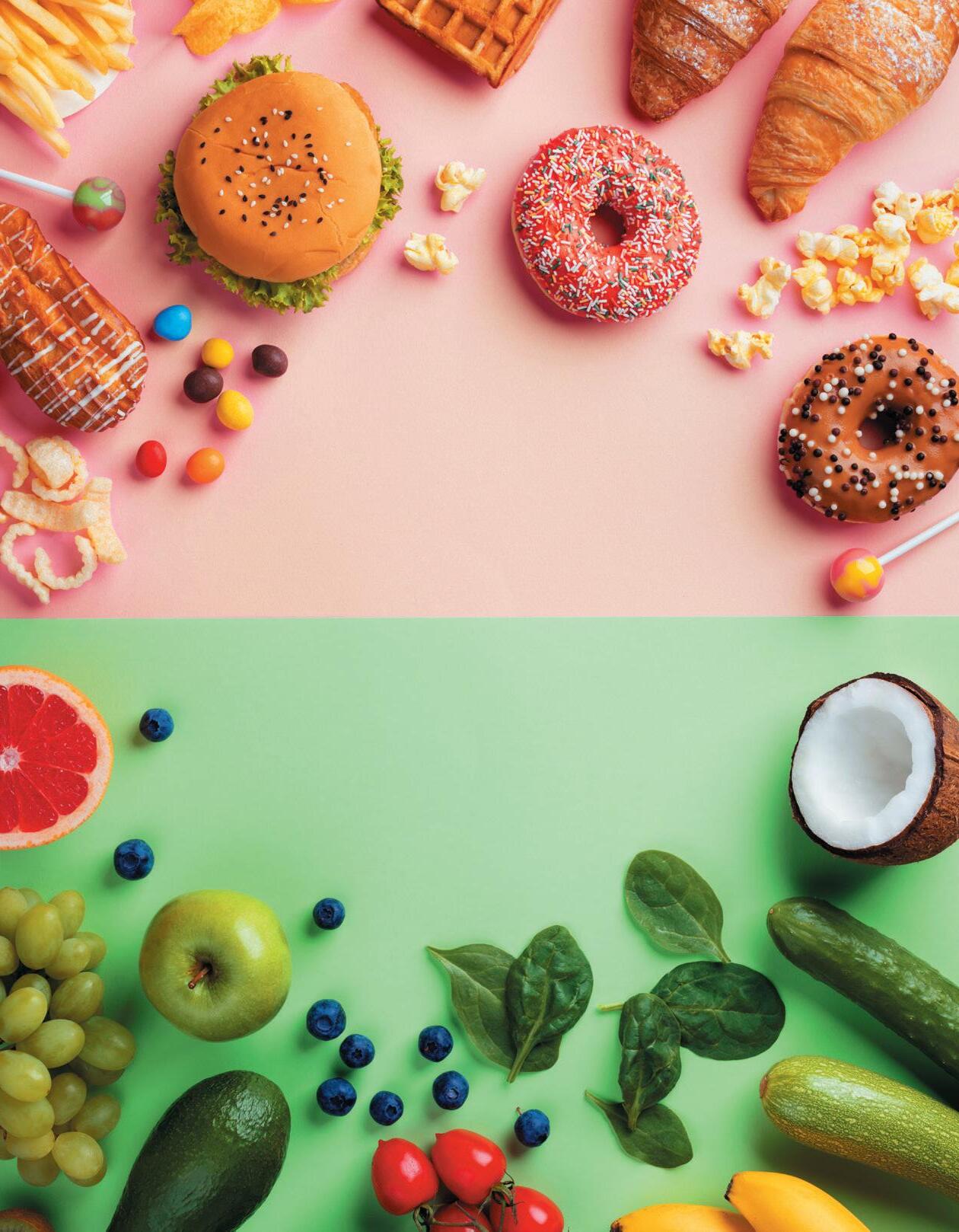
2 minute read
Eat To Thrive Together
I recently had a conversation with a health-conscious firefighter who was just about to finish his probation. We were discussing strategies for how he could fit in with a group of senior firefighters without making himself a total outcast at the dinner table. Referring to an enormous station meal consisting of a burger with, in lieu of a bun, grilled cheese sandwiches on the top and bottom (can't believe you didn't invent that?), he said simply, "I'm just trying not to kill myself at the dinner table."
It’s hard to argue that these aren’t words to live by. So why is this such a hard concept for the fire service to accept? It’s because, for many, this means change.
Change is hard, really hard, even when we have a supportive environment and all too often firefighters are shooting themselves and others in the foot without even knowing it.
Let’s start by acknowledging a little fact. (We can keep this inside the firehouse, though…) Those stubborn, aggressive, hard-charging flame eaters you work with are far more sensitive to needing to feel accepted than they will ever admit. Yeah, you too. And, OK, me as well.
EVERY TIME WE HARASS SOMEONE FOR MAKING BETTER CHOICES AT THE DINNER TABLE, WE’RE UNINTENTIONALLY STOPPING PROGRESS.
It may seem like no big deal… something that’s just part of the culture, but I'm here to tell you that it really hurts those who might be inspired to change, not the “fitness fanatics” who are already set in their ways. (Scratching your head?)
THE BEGINNING OF ANY PERSONAL CHANGE COMES WITH FEELINGS OF AMBIVALENCE, AND ANY RESISTANCE DURING THIS TIME CAN KEEP PEOPLE FROM STAYING ON A HEALTHIER PATH, OR EVEN STARTING.
When I get called out for not eating a dessert or switching a burger for a salad, even though I’m solid in my resolve, it does sting a bit. For those new to healthier eating, the need to feel accepted, coupled with the instant gratification of super-bad-for-you-butso-delicious food can far outweigh the results they will see weeks down the line.
Let’s consider how change, especially concerning nutrition and fitness, happens. It starts with a little spark, just a thought, perhaps triggered by a little bit of shame or desire. It could be that a glimpse in the mirror leaves us unhappy, or we notice how out of breath we were on the last fire call, or how sore we were after lifting a hefty medical patient, or maybe we’ve had some undesirable numbers come back on a blood test. Then, seeing someone else's success might create a twinge of desire, along with a realization of what could be possible.
Then we think. Maybe I should start “X” or maybe I should stop “Y”... but if I do that, then this might happen. Mixed feelings about change can last quite a while, and might linger even after positive action has begun.
It's a step that won’t happen without an emotionally-compelling reason. That change-making emotion must be stronger than the outside pressures to conform.
The emotions that surround change are either where magic happens or the point at which we get kicked back to square one. Someone trying to implement change will be forced to fight their own mental resistance while they form new habits. Support during this time will make all the difference while any added resistance – intentional or not – from outside sources can easily cause failure.
Outside resistance, in my opinion, is the number one reason why nutritional and fitness change is so hard inside the firehouse. The following is a real statement from a fellow firefighter: “Losing weight here sucks. You have to opt out of dinner and then everyone hates you.”
The facts may be false, but the sentiment and emotion behind the words are true.
WE CANNOT CONTINUE TO CULTIVATE AN ENVIRONMENT WHERE FIREFIGHTERS ARE MADE TO FEEL LIKE OUTCASTS FOR DOING THE RIGHT THING, WORKING ON THEIR HEALTH, AND IMPROVING THEIR PERFORMANCE ON THE JOB.
You can take action today by simply implementing some of these suggestions to help support some positive habit changes.










